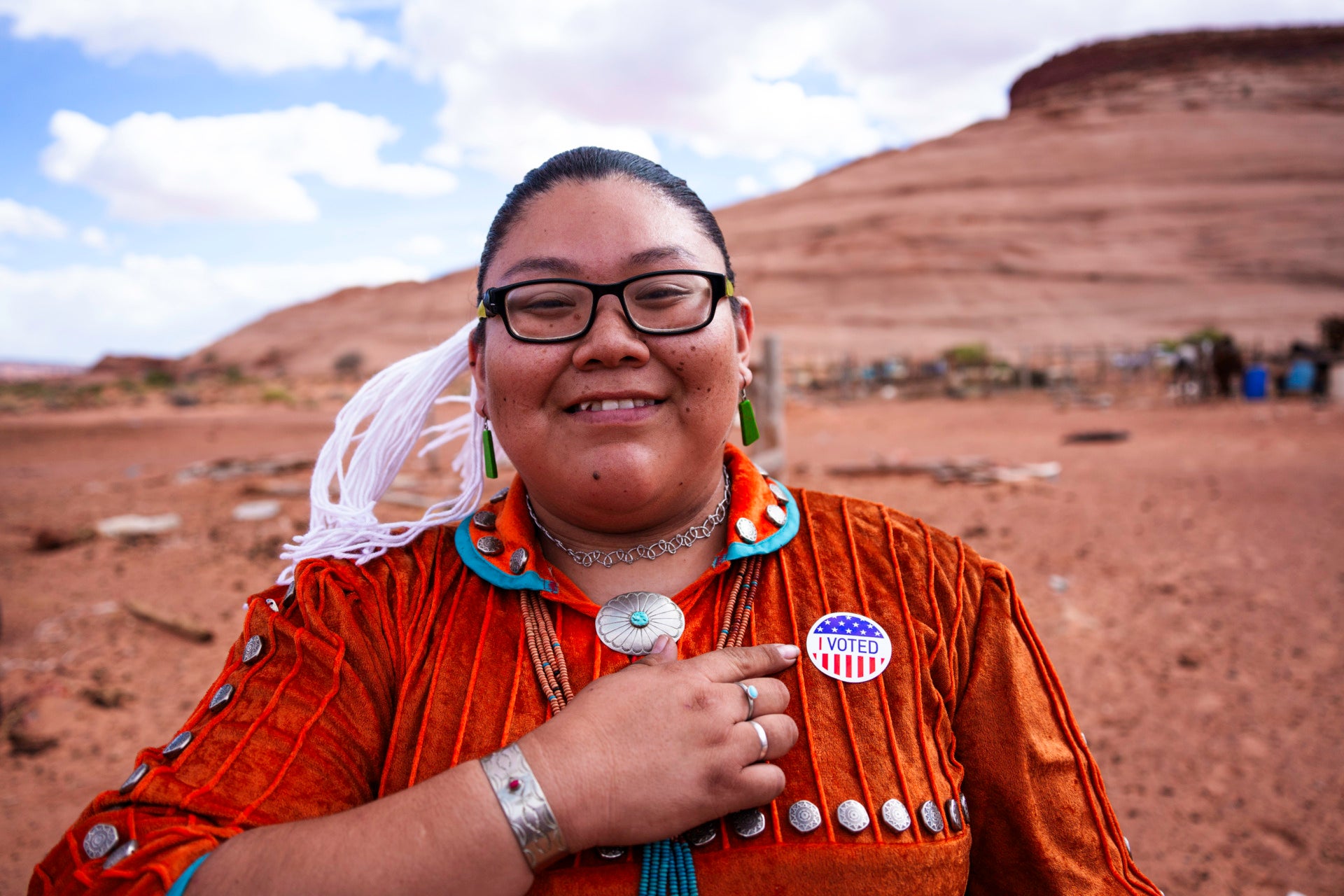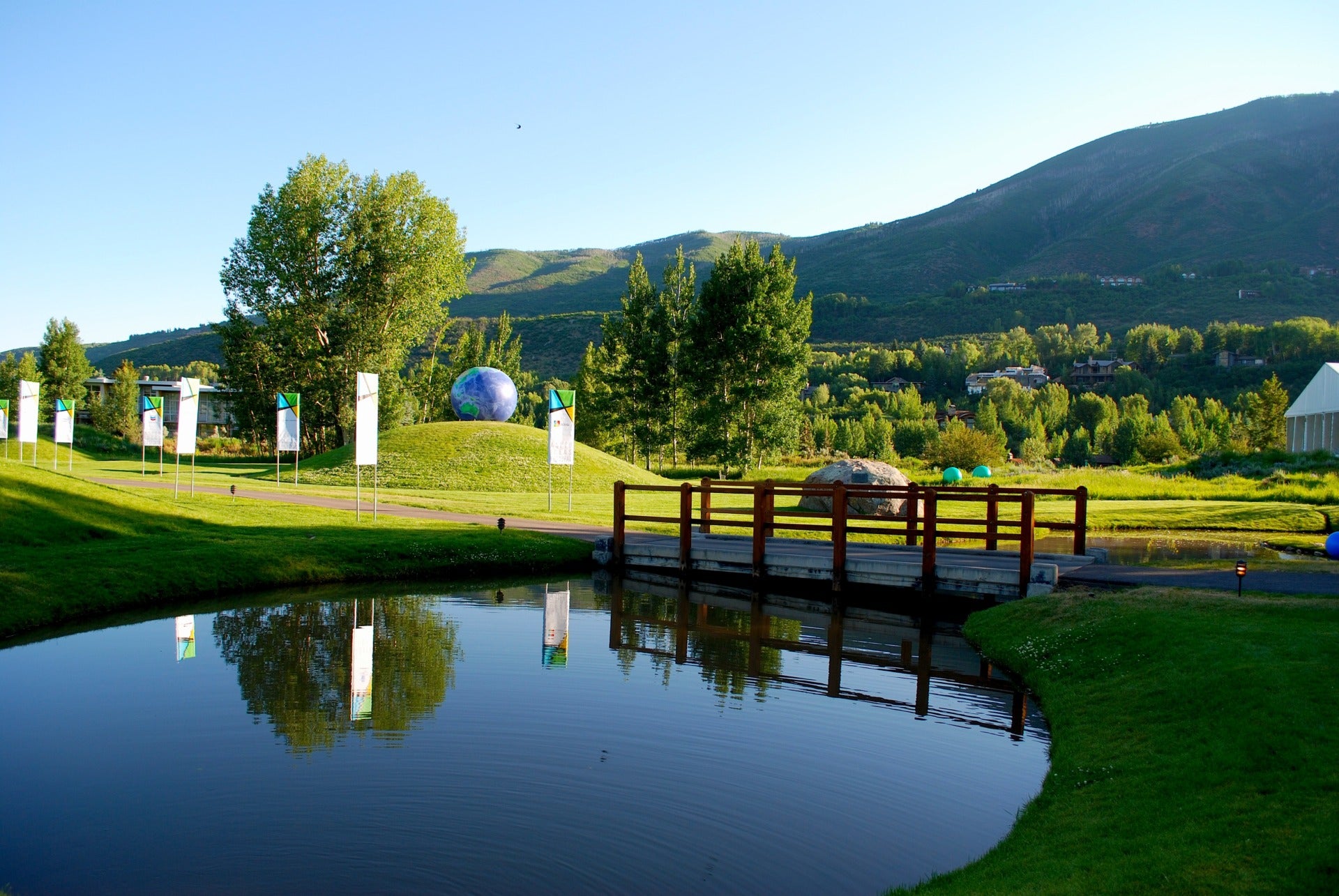Read below for highlights from conversations from the Aspen Institute’s “Our Society Reimagined” program, which this year invited the public to explore the long-standing issues the presidential election brought into sharp focus.
A Loaded Gun
Gun control is a complex and divisive issue. Statistics show that gun homicides are actually down dramatically — and that mass shootings account for less than 1 percent of gun deaths — so why are guns and gun control such a major part of the national conversation? Is it because of the prevalence of violence in American media and culture, like violent video games or the incessant way the media covers violent crimes, which gives the illusion that violence has not gone down? The seemingly never-ending mass shootings and an uptick in terrorist incidents, and the fear that those incite, could also create the belief that violence is on the rise.
According to participants in the Aspen Institute’s “Our Society Reimagined” discussion, politicians sway public opinion on gun control as well — especially in a heated election season when candidates are judged by their stances on the key issues. Widely blamed, according to participants, is the NRA — a lobbying power that in recent history turned toward political activism and an all-out fight against any kind of gun control.
Perhaps the reflex to shift blame to the NRA, politicians, or the media blames everyone but us. Other countries that are heavily armed, such as Switzerland and Israel, don’t have nearly the gun violence that the United States has, so it’s not due to the number of weapons available. One difference might be that in those countries (as among many hunters’ and sport shooters’ groups), firearms education and safety is taken very seriously.
“The problem is deeper than guns,” one participant said. “Why do we murder more? A gun’s a tool. That’s far more disturbing to me. You’ve got to bring it back and say, it’s on us.”
Whatever solutions are found are more likely to gradually chip away at gun violence than to solve it completely, said participants. And one reason for that is a word — and a much broader issue — that came up over and over in the discussion: fear.
“Maybe there is something to fear in our diversity,” said a participant. “There does seem to be a feeling that if people are isolated, without contact with people unlike themselves, they are more likely to be fearful and suspicious of someone unlike themselves.”
Weaving Immigrants Into American Communities
How does immigration impact existing communities? Participants waded into the murky waters of US immigration, an issue that touches on several often-competing sets of societal values – like a tension between liberty and community.
“If everyone does only what they please, you can’t have community,” a participant said. “It’s a natural dichotomy that we have to deal with.”
Participants discussed the competing ideals of diversity and shared values —and how an influx of new people into a community can affect its way of life. While some communities welcome diversity of language, cultures, and ethnicities, others fear the prospect of a changing way of life.
What can help immigrants to be better integrated into their new communities? One participant suggested that it’s all about how effectively a community can assimilate its immigrants, while another argued that assimilation is the antithesis of diversity. Yet another noted that many cultures have the same shared values as many Americans, for example family, that may or may not change in practice when those immigrants settle into the United States.
“So it isn’t one (value) versus the other,” a participant pointed out. “The key is balance, between liberty and diversity and a certain amount of community and shared values. You don’t want too much assimilation, because then you have no diversity. We have to try to find a happy medium to coexist and not fight each other.”
Reckoning with the Election
An emotional group gathered to take a pragmatic approach to analyzing what led to Trump’s stunning victory, and examined ways in which American democracy could move forward and deal with some of the biggest issues this election represented.
A long list of ingredients made up “the perfect stew” that got Trump elected, the group decided.
They pointed to his outsider status, the anger and frustration he channeled from a disenfranchised population, his savior appeal, fear-mongering of the “other” (political opponents and groups perceived to be a threat to America), his experience in showmanship, his adoption of the Republican moral agenda, and his “Snapchat personality,” whose soundbites and bold statements made for constant social media consumption and spin.
“Trump represented exploding the establishment, and that’s what people wanted — a person of action, who will take no prisoners and who doesn’t have any ties to anyone,” said one participant.
Another participant suggested that Trump’s most endearing quality to his supporters was empathy — or at least the appearance of empathy to a large group of people who felt wronged. “He was able to tap into something folks recognized, and that overcame all the negative things.”
Moving forward, the group discussed their goals for a future administration: Appointing a moderate Supreme Court justice, reforming the immigration system including a path to citizenship, improving the health care system particularly in terms of affordability, accepting climate change and participating in a global solution, and improving the nation’s infrastructure while creating jobs.
At the end of the session, participants agreed that they were encouraged by the discussion and had more hope to carry forward. One said she was motivated by this election more than any other she had experienced.

